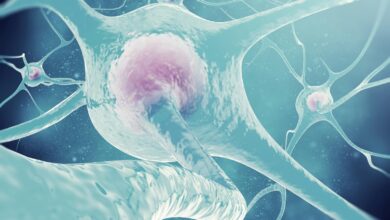Questions to Ask Your OB/GYN

Obstetrician-gynecologists provide care to patients ranging from teenagers to post-menopausal women. They help address concerns such as irregular periods and infertility and perform routine screenings to improve women’s overall health. Here are some questions to ask your obstetrician-gynecologist (OBGYN):
What Screenings Do I Need?
Doctors can perform screenings like pap smears to identify cancerous cells in a woman’s cervix. Abnormal results after a pap smear test may indicate the presence of squamous cells in the lining of the cervix. Women’s health specialists may recommend a Human Papillomavirus (HPV) test to determine further cervical cancer risks and treatment options. Some other precancerous risks they look for include genital warts, which can be removed, and precancerous cells, which can be eliminated to prevent cervical cancer. Bimanual exams are used to check for abnormalities in the ovaries, uterus, and cervix. This can also help healthcare providers detect any sexually transmitted infections (STIs) that may lead to sexual diseases such as chlamydia and gonorrhea.
What Are My Contraceptive Options?
A healthcare provider can help women decide which contraceptive to use. Intrauterine devices (IUDs) come in two different forms: hormonal and non-hormonal. A hormonal IUD releases steady amounts of progestin to the uterus to prevent pregnancy. A non-hormonal IUD, such as a copper IUD, releases a small amount of copper to the uterus to prevent sperm from reaching and fertilizing the egg. Discussions with healthcare providers highlight the advantages of each IUD in catering to an individual’s needs and lifestyle. Providers may also recommend contraceptives like pills, implants, and rings, depending on the patient’s preferences. Contraceptive solutions also offer relief from heavy menstrual bleeding and related symptoms.
How Do I Manage Menopause Symptoms?
Women should consult a healthcare provider to prepare for and manage menopause symptoms such as night sweats and hot flashes. Hormone replacement therapy (HRT) can provide relief from these symptoms. Aside from pain relief, HRT may be used to minimize the risks of heart disease in some women by improving cholesterol levels and blood vessel functionality.
HRT may slow bone loss and prevent osteoporosis caused by decreased estrogen levels. Visiting a healthcare provider regularly to test bone density can help women catch potential health problems early on. Comprehensive bone health assessments may be performed to determine if HRT should be included in a patient’s personalized menopause treatment plan.
When Should I Schedule an Appointment?
Schedule annual appointments with an OBGYN to screen for underlying conditions affecting vaginal health. A healthcare provider may schedule additional appointments to monitor reproductive health symptoms closely. The availability of telehealth options provides an avenue to communicate with doctors virtually while benefiting from quality medical care. Telehealth features may allow patients to view their treatment history and future appointment availability, giving them more control over their care.
Visit an OBGYN
Obstetrician gynecologists help you manage your reproductive health to improve your overall well-being. Asking questions related to treatment plans and symptom management helps you make informed decisions for your reproductive health. Schedule a consultation with an OBGYN today to learn more about their services.





